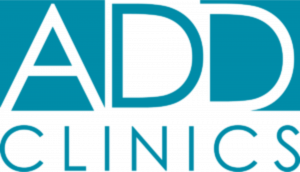
Addressing the Misconceptions and Realities of Adult Attention Deficit Disorder (ADD)
Understanding ADD and Overcoming Skepticism
"Two of my four sisters have significant ADD! They are also highly hyperactive, like me," Dr. Owen states. Despite the personal and professional insight into ADD, skepticism remains prevalent, even among those who may have the condition themselves. "A majority of the general population doubts the diagnosis of ADD," Dr. Owen observes. This doubt often extends to children, where many attribute symptoms of ADD to poor parenting or misbehavior, rather than recognizing it as a legitimate medical condition.
Dr. Owen highlights a common, yet troubling, reaction to children with ADD: "I’ve heard so many times, 'they just need a good whipping.' Really! Someone is born, or even acquires a brain dysfunction (like traumatic head injury), and you are going to beat them!" Physical punishments are not effective for managing typical ADD behavior because they do not address the underlying neurological issues that contribute to the condition. Instead of teaching better coping mechanisms or behavioral strategies, physical punishments can lead to increased stress, anxiety, and a sense of shame, which can exacerbate ADD symptoms and negatively impact emotional well-being.
The Brain as an Organ
Dr. Owen stresses the importance of understanding the brain as an organ subject to dysfunctions that can be visualized through advanced imaging techniques. "Many types of brain dysfunction can be visualized on SPECT nuclear or MRI brain scans," he explains, referencing the work of pioneers like Dr. Daniel Amen and Dr. Nora Volkow. These imaging techniques can reveal abnormalities, including those induced by drug use.
"The brain is an organ. As any organ with cells, it is subject to many internal and external factors that affect behavior and cognition," Dr. Owen states. Factors such as hormones, drugs of abuse, vitamins, and adrenaline can significantly impact brain function, as can the aging process. Understanding this complexity is crucial in recognizing and treating ADD.
Treating and Improving Brain Function
Dr. Owen advocates for the use of various medications, hormones, vitamins, minerals, and devices to enhance brain function. "Many medications, hormones, vitamins, minerals, and devices can improve brain function. Why would someone object to improving brain function?" he questions. The goal is to provide individuals with ADD the tools they need to manage their condition effectively and improve their quality of life.
Dr. Owen shares a poignant observation from a recent encounter: "I recently witnessed a parent with a hyperactive 3-year-old tell the child 'quit,' 'stop,' 'sit down,' and other admonishments at least 50 times in her 10-minute visit. Imagine the impact on this kid hearing those admonishments from his mother, father, grandparents, teachers, employers, his entire life!" This relentless criticism, even from loved ones, can have a profound and lasting negative impact on individuals with ADD.
Advocating for Understanding and Support
Dr. Owen calls for a broader understanding and acceptance of ADD as a legitimate medical condition that requires appropriate treatment and support. "Behavior of all types is viewed differently from external disabilities," he notes. While legal protections exist for those with physical disabilities, similar protections and understanding are often lacking for those with brain-related challenges.
To those who might have Adult ADD or care for someone who does, Dr. Owen offers this advice: "If someone MIGHT have Adult ADD, I urge those who care to search and find a physician with interest, training, and expertise in the field." His dedication to the field of Adult ADD has been the most rewarding aspect of his medical career, providing significant benefits to his patients.
About Dr. Stanford A. Owen and ADD Clinics
Dr. Stanford A. Owen is the owner of ADD Clinics in Mississippi. He is certified in Internal Medicine, Nutrition, and Psychopharmacology and has spent his career advancing the understanding and treatment of Adult ADD. Dr. Owen's practice is dedicated to improving the lives of those affected by ADD through comprehensive and compassionate care.
Morgan Thomas
Rhino Digital, LLC
+1 504-875-5036
email us here
Visit us on social media:
Facebook
EIN Presswire does not exercise editorial control over third-party content provided, uploaded, published, or distributed by users of EIN Presswire. We are a distributor, not a publisher, of 3rd party content. Such content may contain the views, opinions, statements, offers, and other material of the respective users, suppliers, participants, or authors.



